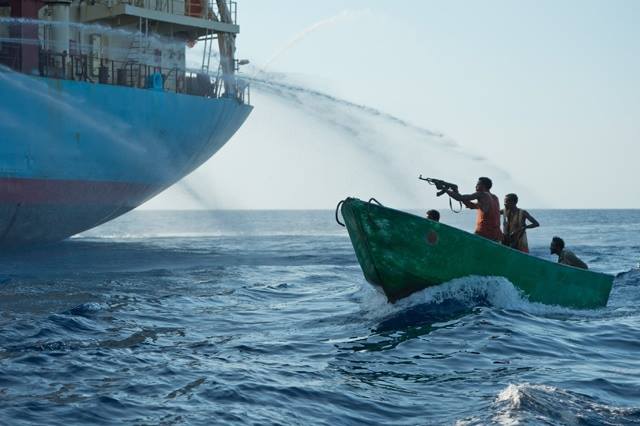Historical Context: The rise of piracy off the coast of Somalia can be traced back to the early 2000s when the country was experiencing political turmoil and lacked a functioning central government.
This created a power vacuum that allowed pirate groups to flourish.
Economic Motivation: Somali pirates often resorted to piracy as a means of economic survival. Poverty, unemployment, and lack of economic opportunities were significant factors driving some individuals to engage in piracy.
The potential for large ransom payments from hijacked ships was a strong incentive for many pirates.
International Response: The international community, including various naval forces, responded to the piracy problem in the region.
Naval patrols were established, primarily led by the European Union, NATO, and the Combined Maritime Forces, to deter and intercept pirate activities. These efforts, along with increased security measures implemented by the shipping industry, have significantly reduced piracy incidents in recent years.
Prosecution and Imprisonment: Countries such as Kenya, Seychelles, and Mauritius have taken on the responsibility of prosecuting suspected pirates captured by international naval forces.
These countries have established specialized courts to handle piracy cases. Additionally, some countries, including the United States, have conducted prosecutions under universal jurisdiction, allowing them to try pirates in their own courts.
Efforts to Address Root Causes: Recognizing that piracy is a symptom of deeper problems, efforts have been made to address the root causes of piracy in Somalia.
These include initiatives to promote stability, strengthen governance, and support economic development in the country. International organizations, such as the United Nations and the World Bank, have been involved in these efforts.
It’s important to note that the situation has evolved over time, and while piracy off the coast of Somalia has significantly decreased in recent years, it remains a complex issue that requires continued attention and efforts to ensure long-term stability and economic development in Somalia.
It’s important to approach any discussion about criminal activities with care and avoid generalizations.
While it is true that piracy has been a problem off the coast of Somalia in the past, it is essential to remember that not all Somali youths are involved in such activities. It is unfair to label an entire group based on the actions of a few individuals.
Piracy off the coast of Somalia was primarily motivated by economic reasons, as the pirates sought to obtain ransoms from hijacked ships. However, it’s worth noting that the international community, including foreign forces, has taken steps to combat piracy in the region. This has involved naval patrols, the prosecution of pirates, and initiatives to promote stability and economic development in Somalia.
If specific individuals have been accused of committing crimes, it is crucial to follow due process and ensure a fair investigation and trial. The presumption of innocence should be upheld until guilt is proven beyond a reasonable doubt.
It’s also important to recognize that the situation in Somalia is complex, with underlying issues such as poverty, political instability, and lack of economic opportunities contributing to the challenges faced by Somali youths.
Addressing these root causes is crucial to prevent young people from being drawn into criminal activities.
Jibril Qoobey.
Discover more from Idil News
Subscribe to get the latest posts sent to your email.


